APIs for Protocol Simulation,
Conformance & Regression Testing
15th, Mar 2019
Welcome to another March 2019 issue of GL Communications' Newsletter providing information and insight into Test Automation and Remote Testing through “API Support for MAPS™ Emulation Platform”. API capability has wide ranging applications for Signaling and Traffic Simulation over IP, Wireless, TDM and Analog Networks. The APIs allow easy integration with Network Instruments’ TestStand and LabView and QualiSystems' TestShell software frameworks offering complete Lab Management, Device Provisioning and Test Automation solutions for engineers.
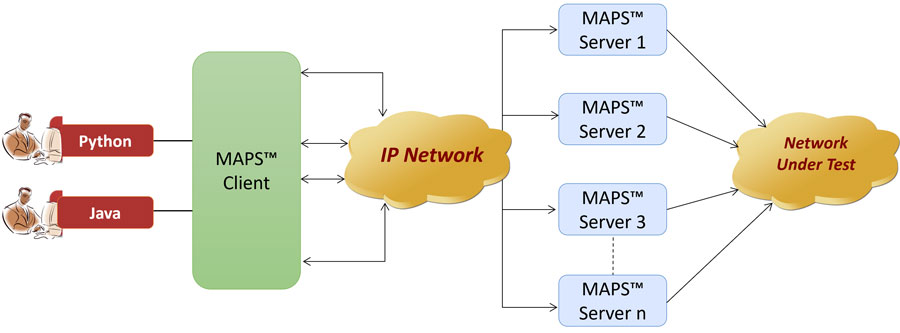
Overview
GL’s MAPS™ Emulation architecture / platform can be configured as server-side application, to enable remote controlling through multiple command-line based clients including Python, Java, VBScripts, TCL, and others. The MAPS™ APIs allows for programmatic and automated control over all MAPS™ platforms. Each MAPS™ server can receive multiple client connections and offer independent execution to each client. Likewise, a single client can connect to multiple MAPS™ servers, including servers running different protocols, permitting complex cross-protocol test cases.
The MAPS™ application provides access to Signaling and Traffic simulation functionalities listed below remotely using Command Line Interface (CLI) and APIs clients such as Python, TCL, Java, VBScripts and others.
- Functional regression testing
- Long duration, high volume performance/load testing
- Protocol conformance testing
- Negative testing
- IVR traversal
- Interoperability testing
- Voice Quality testing
Wide variety of protocols are supported across TDM, VoIP, Wireless, Analog networks -
Wireless Network - 4G, 3G, 2G over IP |
VoIP Network |
TDM/PSTN Network |
|---|---|---|
Diameter, UMTS IuCS, GSM AoIP (GSM A over IP), INAP IP, BICC IP, SS7/ISDN SIGTRAN, MAP IP, CAP (CAMEL Application Part) |
SIP, MEGACO, SIP I (SIP ISUP), ED-137 (Air Traffic Management) |
ISDN, SS7 (ISUP), CAS, GSM A, GSM Abis, MAP (Mobile Application Part), INAP (ANSI, ITU), CAP (CAMEL Application Part), IUP |
Working Principle of MAPS™ CLI
Python, TCL, Java, VBScripts Clients
Python/Java Client and Scripting
In addition to existing TCL and VBS APIs, GL is now offering Python and Java APIs for all variants of MAPS™. The API is written using an object-oriented coding paradigm, designed to give the user simple and intuitive containers for their messages, calls and regressions.
The new API is divided into “High” and “Low” level function calls.

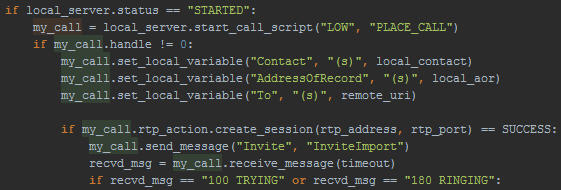
A Low-Level call control scripts transplant that logic to the API language, giving the user full control over signaling. This necessarily leads to more complex API scripts, but it gives the user complete control over the state machine.
TestShell Framework Integration
TestShell is an enterprise software framework offers complete Lab Management, Device Provisioning and Test Automation solutions for engineers. TestShell is a popular framework for test automation and is used worldwide to integrate different vendor equipment and automate the use of the same.TestShell has a TCL Client built in, with scripting, drag and drop interface. This makes the system compatible with GL's MAPS™ Protocol Emulation software. TestShell / TCL Client runs TCL scripts which executes commands, that instructs the MAPS CLI Server to run a particular script that emulates the state machine to place or answer calls for the protocol specified
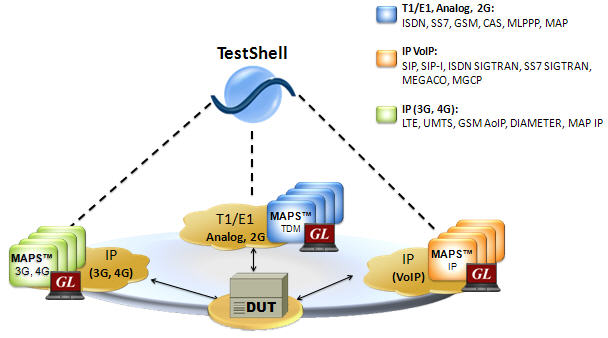
MAPS™ Integration with TestShell
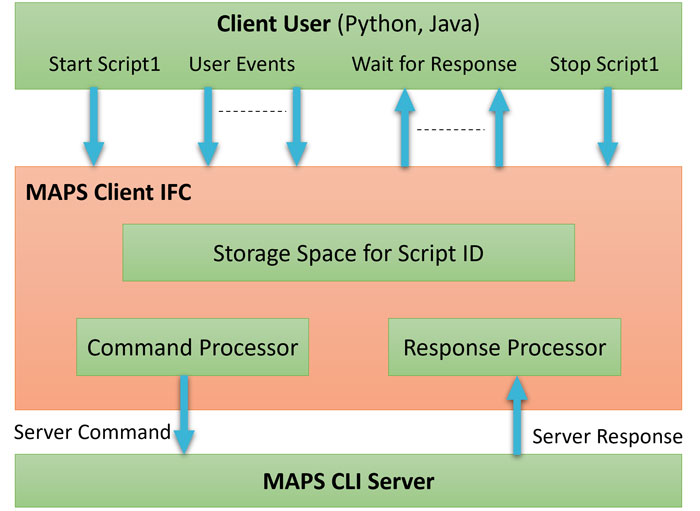
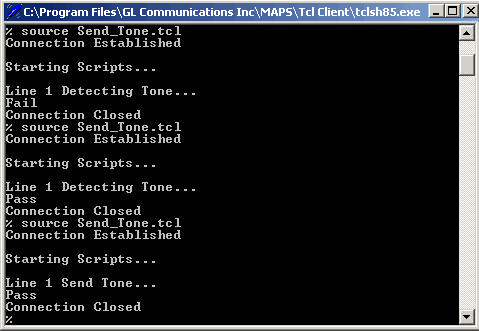
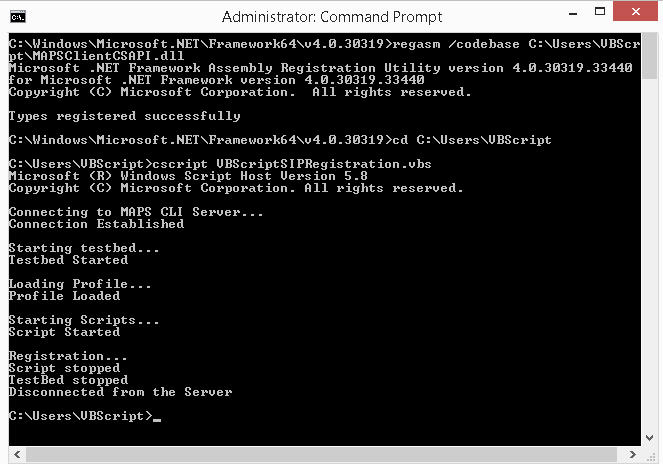
 Back to Newsletter Index Page
Back to Newsletter Index Page